Myths of Sugar-free and low-fat diet
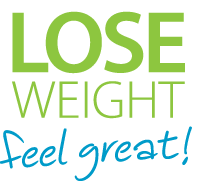 We have been told that fat makes us fat. But certain fats are essential to maintain health and
vitality and boost the body's metabolic rate. according to new research that is debunking our fat-phobia. Immense health
and weight-loss benefits of a high-fat diet rich in omega-3 fats,
as in flaxseed oils, organic eggs, nuts, avocados, and other delicious super-foods.
We have been told that fat makes us fat. But certain fats are essential to maintain health and
vitality and boost the body's metabolic rate. according to new research that is debunking our fat-phobia. Immense health
and weight-loss benefits of a high-fat diet rich in omega-3 fats,
as in flaxseed oils, organic eggs, nuts, avocados, and other delicious super-foods.
We have been told that artificial sweetener products
are safe and makes us thin but medical research reveal that these sugar-free products are
actually linked to long-term weight gain, vision problems, depression and brain cancer.
In its natural form, sugar is not inherently bad, as long as it's consumed in moderation. This means avoiding all
sources of fructose, particularly processed foods and beverages like soda. Medical research found a powerful connection
between a high-fructose diet and your risk of developing Alzheimer's disease,
through the same pathway that causes type 2 diabetes. Fructose is also readily used by cancer cells to increase their proliferation
Eat the Right Kind of Fat and Lose Weight
Dr. Mark A. Hyman, M.D - "For decades, people were warned to avoid
fats at all costs. But we now know that the type of fat you eat is more important
than the amount of fat you eat. The new science of nutrigenomics
traces the biological impact of good fats, like the
omega-3 fatty acids (contained primarily
in fish, fish oils, walnuts, flax and hemp seeds, and a limited number of other
foods) - and bad fats, like processed vegetable oils and the trans-fats in many
processed foods. The recommendation to eat foods high in omega-3 fatty acids
is old news. What's new is the discovery of the weight-loss secret behind that
recommendation.
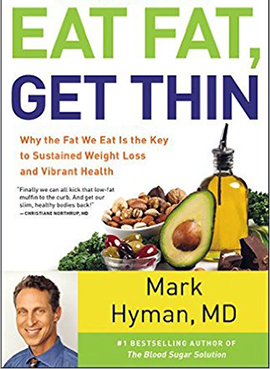 In EAT FAT, GET THIN, bestselling author Dr. Mark Hyman introduces a
new weight-loss and healthy living program based on the latest science. Offering practical tools, meal plans, recipes, and
shopping lists, as well as step-by-step, easy-to-follow advice.
In EAT FAT, GET THIN, bestselling author Dr. Mark Hyman introduces a
new weight-loss and healthy living program based on the latest science. Offering practical tools, meal plans, recipes, and
shopping lists, as well as step-by-step, easy-to-follow advice.
"Eat Fat, Get Thin cuts through the big fat lies we've all
been fed about dietary fat-including us doctors. Sharing his
own experience and that of his many patients, Dr. Hyman lays
out a dietary plan that is satisfying, delicious, sustainable,
and healthy. Finally we can all kick that low- fat muffin to the curb.
And get our slim, healthy bodies back!"―Christiane Northrup, MD, author
of Women's Bodies, Women's Wisdom
"Dr. Mark Hyman is one of the most important voices in the world of
medicine, health, and nutrition. And his new book--Eat Fat, Get Thin--is
exactly why. Armed with clear up-to-date research and years of clinical
success. Dr. Hyman explodes the outdated concept of the evils of dietary
fat, and explains in an easy-to-understand fashion how the right fats for
your body are indeed the right fats for your ideal weight. And he gives
you the program to put it all to great use. It's time to do a big course
correction in how we understand the fat in our food, and the fat on our bodies.
Mission accomplished! Eat Fat, Get Thin may be the most important and effective
diet book of the decade.
When you consume EPA or DHA, both omega-3 fatty
acids, they access a metabolic gateway (the PPAR receptor) to activate genes
that increase your metabolism, help you burn fat, and assist you in processing
sugar more effectively so food won't get stored as fat. At the same time, unhealthy trans-fats act as a metabolic
roadblock to weight loss. Controlling your brain chemistry by eating good fats
and avoiding bad fats can help you curb your appetite and boost your health.
But it's just one of the seven metabolic keys to weight loss.
This is way more than a book about losing weight.
It's all about being the healthiest and most well nourished version of you.
I couldn't recommend this book more highly."―Marc David, founder of Institute
for the Psychology of Eating and author of The Slow Down Diet and Nourishing Wisdom

Weight Gain and Insulin Resistance Syndrome
Insulin resistance is more common in overweight
individuals and is associated with increased risk for type 2 diabetes
mellitus and cardiovascular disease.
Insulin is a kind of hormone. It helps your body store sugar in your tissues.
Your body uses stored sugar for energy. In some people, the tissues stop responding
to insulin. We say that these people are resistant to insulin.
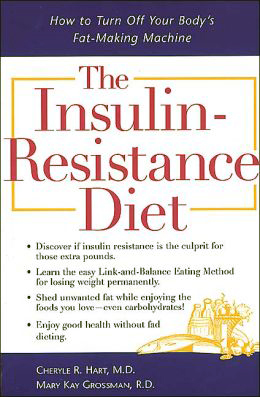 If you have insulin
resistance, your body will pour more and more insulin into your blood, but it
will not help you store sugar. Insulin resistance often goes along with other
health problems, like diabetes, high cholesterol, high blood pressure and heart
attack. When one person has many of these problems together, we call it insulin
resistance syndrome.
If you have insulin
resistance, your body will pour more and more insulin into your blood, but it
will not help you store sugar. Insulin resistance often goes along with other
health problems, like diabetes, high cholesterol, high blood pressure and heart
attack. When one person has many of these problems together, we call it insulin
resistance syndrome.
Since insulin resistance is more common in overweight individuals and is
associated with increased risk for type 2 diabetes mellitus and cardiovascular
disease, and given the current epidemic of obesity and the fact that lifestyle
interventions, such as weight loss and exercise, decrease insulin resistance,
a relatively simple means to identify overweight individuals who are insulin
resistant would be clinically useful.
Thus researchers evaluated the ability
of metabolic markers associated with insulin resistance and increased risk for
cardiovascular disease to identify the subset of overweight individuals who
are insulin resistant in a cross-sectional study at a general clinical research
center involving 258 nondiabetic, overweight volunteers.
"When you eat a meal full of processed carbohydrates like breads and bakery
goods, your insulin level skyrockets as your body digests the carbs in your
food and immediately stores the glucose (sugar) from your food in your fat cells.
And when your body can’t access the calories in your fat cells? Hunger strikes!
Your body experiences an energy crisis and it will demand food, stat. If you’re
reaching for more processed carbs like bagels or pastas to stay satiated, the
vicious hunger cycle won’t stop."
“Your solution: Eat more fat. The fastest way to lower insulin levels is to
substitute fat for processed carbohydrates,” says Ludwig. Seems counterintuitive
that fatty foods can help you lose weight, right? Catch is: They have to be healthy
sources of fat (think: olive oil and avocados, not Reese’s and Doritos). Foods rich
in fat will help you feel satiated, and they won’t trigger the insulin high and crash
that most processed carbs do. Without insulin highs and lows, your blood sugar will
be more stable and your body can access the fuel it’s storing in your fat cells." Alex Orlov, Life by Daily Burn
Symptoms of insulin resistance
- Many symptoms manifest themselves immediately following a meal of carbohydrates,
and others are more or less always present. Keep in mind that these symptoms
may also be related to other problems
-
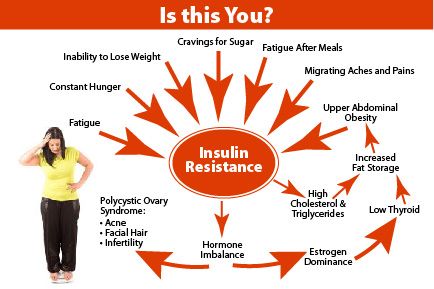 Increased weight and fat storage. For most people, too much weight is
too much fat. In males, a large abdomen is the more obvious and earliest
sign of Insulin Resistance. In females, it's prominent buttocks.
Increased weight and fat storage. For most people, too much weight is
too much fat. In males, a large abdomen is the more obvious and earliest
sign of Insulin Resistance. In females, it's prominent buttocks.
- Sleepiness. Many people with Insulin Resistance get sleepy immediately
after eating a meal containing more than 20% or 30% carbohydrates. This
means typically a pasta meal, or even a meat meal which includes potatoes
or bread and a sweet dessert.
- Brain fogginess. Sometimes the fatigue of Insulin Resistance is physical,
but often it's mental. The inability to focus is the most evident symptom.
Poor memory, loss of creativity, poor grades in school often accompany Insulin
Resistance, as do various forms of "learning disabilities."
- Low blood sugar. Mild, brief periods of low blood sugar are normal during
the day, especially if meals are not eaten on a regular schedule. But prolonged
periods of this "hypoglycemia," accompanied by many of the symptoms listed
here, especially physical and mental fatigue, are not normal.
- Feeling agitated, jittery and moody is common in Insulin Resistance,
with almost immediate relief once food is eaten.
- Intestinal bloating. Most intestinal gas is produced from carbohydrates
in the diet. Insulin Resistance sufferers who eat carbohydrates suffer from
gas, lots of it.

Stress Makes You Gain Weight, Relaxing Makes You Thin.
Under any physical or psychological stress, the body is designed to protect
itself. It stores calories and conserves weight. It pumps hormones into the
system that increase blood fats, sugar and insulin to prepare the body for 'fight
or flight.' Without eating more or exercising less, stress alone will cause
weight gain and lead to diabetes.
Active relaxation turns on nerves that reduce inflammation, increase fat burning
and give the body the ability to control blood sugar.
Without detoxification and a
nutritionally rich diet that nourishes and assists the
body in cleansing these substances from the body, the body will lose its strength
and vitality. The immune system will become suppressed, contributing to an increase
in illness, disease and excess body fat - a major killer in America today.
These
chemicals and toxins accumulate over time, and cause the liver and kidneys to
become overworked and weak. Research has shown that
stress causes the adrenals to release excess cortisol, a stress hormone that triggers over-indulgence in
simple carbohydrates: chocolate, candy, sodas, and ice cream, even when you
are not hungry. Excess cortisol contributes to hormone imbalances. Most people
who struggle with an overweight condition blame themselves for lack of discipline
or willpower. While good eating habits are important, the real problem has to
do with a much larger issue, our food supply.
Douglas Lisle, Ph.D. - "Once in awhile, a person may actually become
aware of important dietary knowledge. Despite the tremendous commercially-motivated
misinformation campaigns waged by the dairy, cattle, and processed food industries,
sometimes a person actually comes to understand the truth about diet. At such
times, determined individuals might attempt to change their diet toward whole
natural foods, in spite of dire and unfounded warnings from their families, friends,
and doctors. But along the way, they are likely to be met with a formidable
obstacle—their own taste neuro-adaptation to artificially-intense foods."
VelociTea Detox Weight Loss Tea
 The VelociTea
herbal tea blend can assist the body in eliminating waste, foreign matter and toxins
in a simple, yet effective, easy-to-use but low cost method. The VelociTea Detox Weight Loss Tea
is much more effective than Chinese Green Tea. Just drinking the Tea regularly often
results in a reduction in the amount of stored fat in the body, and a significant
reduction in the size of the abdomen or belly.
The VelociTea
herbal tea blend can assist the body in eliminating waste, foreign matter and toxins
in a simple, yet effective, easy-to-use but low cost method. The VelociTea Detox Weight Loss Tea
is much more effective than Chinese Green Tea. Just drinking the Tea regularly often
results in a reduction in the amount of stored fat in the body, and a significant
reduction in the size of the abdomen or belly.
Detoxify the liver so it will properly metabolize sugars and fats. Toxins from within
our bodies and toxins from our environment both contribute to obesity. Getting rid of
these toxins and boosting the natural detoxification system is an essential component
of long-term weight loss and a healthy metabolism."
For some people, the weight loss has been achieved quickly and rather dramatically,
but individual results will vary. When the excess weight is actually from impacted fecal
matter stuck to the inside wall of the colon and small intestine, no amount of dieting or
fat loss or exercise can reduce the size of the belly. But the VelociTea Holy Tea can! If
you have bloat, midriff bulge, or a "beer belly" then Holy Tea can help you shed
pounds and lose inches around your waist.

 Anita
- Teacher Lost 80 lbs. in 10 months "Not only did this herbal tea product
burn fat, it curbed my appetite and added muscle tone to my body. It also made
my skin smooth on all parts of my body."
Anita
- Teacher Lost 80 lbs. in 10 months "Not only did this herbal tea product
burn fat, it curbed my appetite and added muscle tone to my body. It also made
my skin smooth on all parts of my body."

 Ricky - Retired Lost 265 - " this herbal tea product suppressed my appetite,
helped me to be more focused and alert. My concentration was increased, my glucose
level stayed regulated, and it even corrected my thyroid."
Ricky - Retired Lost 265 - " this herbal tea product suppressed my appetite,
helped me to be more focused and alert. My concentration was increased, my glucose
level stayed regulated, and it even corrected my thyroid."


Sally - Real Estate Lost 60 lbs. "Not only did this herbal tea product
make me look years younger, I feel years younger, and I have more energy than
ever. I would recommend this product to anyone!"
The VelociTea Detox Tea ingredients include persimmon leaves which can inhibits
weight gain and lowers lipid levels. The VelociTea contains persimmon leaves and other
healing herbs which assists the body in eliminating waste, foreign matter, toxins and
excess weight in a simple, yet effective, easy-to-use but low cost method.

Losing weight Effortlessly on Raw Food Diet

 Dr. Alexander Leaf published the findings
of his research about the oldest people in the world. He found that the diet of all of these people consists
of 70-80 percent raw, uncooked fruits and vegetables.
None of these peoples were overweight or suffer from Western diseases. On the average these
people live to be over 100 years old. The men are physically active and still fathering children at 100 years of age.
Dr. Alexander Leaf published the findings
of his research about the oldest people in the world. He found that the diet of all of these people consists
of 70-80 percent raw, uncooked fruits and vegetables.
None of these peoples were overweight or suffer from Western diseases. On the average these
people live to be over 100 years old. The men are physically active and still fathering children at 100 years of age.
"In the early eighties, when I was 30, I weighted 185 pounds, I suffered
from chronic fatigue and I was sick most of the time with one thing or another.
I was also a victim of the never-ending flow of propaganda from the
medical establishment (which I think
of as the "disease" establishment because they focus on disease rather than
on prevention and wellness) who wants to maintain a monopoly on the word "cure"
and who wants us to believe that we have no control over our own health and
that our only hope to get "well" is with drugs, surgery and radiation.
When I turned to holistic health and changed my diet to eating 80% raw food,
I lost 60 pounds in 3 months effortlessly. (and
never had to struggle again to keep my weight down) and my energy level and
stamina improved dramatically. I was able to function better overall. I became
calmer, centered and focused, and generally I felt happier and became much healthier.
Raw food is natural and simple, unprocessed and unadulterated. For the most part,
raw foods are higher in nutrients and free from unhealthful additives. "- Shirley

How stress affects your digestion and weight
Perhaps the most important cause of obesity is something that we all face – the everyday stress of modern
life. When under chronic stress, your adrenal glands
overproduce the hormone cortisol. Although cortisol is necessary in normal amounts,
an excess of this stress hormone can create a cascade of harmful side effects,
many of which can cause weight gain – no matter how vigilantly you diet or exercise!
Cortisol causes:
- Activation of fat-storage hormones and enzymes.
- Conversion of protein in the body into unwanted sugar and fat.
- Halt in secretion of fat-burning human growth hormone (hGH).
- Accumulation of dangerous 'apple-type' abdominal fat.
- Increase in appetite and cravings for sweet and fatty foods.
- Progressive insulin resistance, which leads to type II diabetes, hypertension,
cardiovascular disease, and the other health risks associated with obesity

Thyroid Health: A Key to Weight Loss
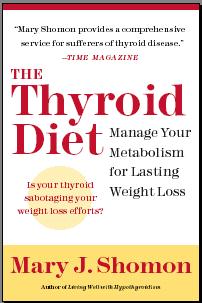 The thyroid hormone plays an integral role in regulating your body's metabolism.
Hypothyroidism, a condition in which not enough thyroid
hormone is produced, is one of the most under- diagnosed conditions that I've
seen. It affects over 10,000,000 Americans, and is a leading cause of weight
gain. One of the more common causes of hypothyroidism is an allergy to gluten
(a protein found in wheat, barley, rye, oats, spelt, and kamut). People who
are allergic to gluten react in different ways, including suppressing the body's
production of the thyroid hormone. This leads to a dramatic slowdown in metabolism.
The thyroid hormone plays an integral role in regulating your body's metabolism.
Hypothyroidism, a condition in which not enough thyroid
hormone is produced, is one of the most under- diagnosed conditions that I've
seen. It affects over 10,000,000 Americans, and is a leading cause of weight
gain. One of the more common causes of hypothyroidism is an allergy to gluten
(a protein found in wheat, barley, rye, oats, spelt, and kamut). People who
are allergic to gluten react in different ways, including suppressing the body's
production of the thyroid hormone. This leads to a dramatic slowdown in metabolism.
Many dietary oils can negatively affect
thyroid health. We cook with them almost every day and they are plentiful in
commercially prepared foods. Expeller-pressed or solvent-extracted oils only
became a major part of the American diet in the last century. It is possible
they are among the worst offenders when it comes to the thyroid. They are known
as vegetable oils or polyunsaturated oils. The most common source of these oils
used in commercially prepared foods is the soybean.
Large-scale cultivation of soybeans in the United States began after World
War II and quickly increased to 140 billion pounds per year. Most of the crops
are produced for animal feed and soy oil for hydrogenated fats such as margarine
and shortening. Today, it is nearly impossible to eat at restaurants or buy
packaged foods that don’t have soy oil in the ingredients. Often labels simply
state vegetable oil.
Ray Peat Ph.D - "Their [polyunsaturated oils] best understood effect
is their interference with the function of the thyroid gland. Unsaturated oils
block thyroid hormone secretion, its movement in the circulatory system, and
the response of tissues to the hormone. When the thyroid hormone is deficient,
the body is generally exposed to increased levels of estrogen. The thyroid hormone
is essential for making the ‘protective hormones’ progesterone and pregnenolone,
so these hormones are lowered when anything interferes with the function of
the thyroid. The thyroid hormone is required for using and eliminating cholesterol,
so cholesterol is likely to be raised by anything that blocks the thyroid function.
There is a growing body of research concerning soy’s detrimental affect on the
thyroid gland. Much of this research centers on the phytoestrogens ("phyto"
means plant) that are found in soy. In the 1960s when soy was introduced into
infant formulas, it was shown that soy was goitrogenic and caused goiters in
babies. When iodine was supplemented, the incidence of goiter reduced dramatically.
However, a retrospective epidemiological study by Fort, et al. showed that teenage
children with a diagnosis of autoimmune thyroid disease were significantly more
likely to have received soy formula as infants (18 out of 59 children 31 percent)
when compared to
healthy siblings (nine out of 76, 12 percent) or control group
children (seven out of 54 13 percent). When healthy individuals without any
previous thyroid disease were fed 30 grams of pickled soybeans per day for one
month.
Reported goiter and elevated individual thyroid stimulating
hormone (TSH) levels (although still within the normal range) in thirty-seven
healthy, iodine-sufficient adults. One month after stopping soybean consumption,
individual TSH values decreased to the original levels and goiters were reduced
in size. Ray Peat Ph.D., is a physiologist who has worked
with progesterone and related hormones since 1968, says that the sudden surge
of polyunsaturated oils into the food chain post World War II has caused many
changes in hormones.

Childhood Obesity Prevention
A newly published paper in the Journal of Endocrinology,
Diabetes and Obesity, 5(3): 1107, by immunologist J. Bart Classen, MD of Classen Immunotherapies
provides further proof of the dangers of vaccines. The paper reviews the growing evidence
that many cases of obesity, type 2 diabetes and metabolic syndrome are inflammatory
conditions and that vaccine induced inflammation is the cause of the epidemic of these
diseases.
 Upon receiving a vaccine some individuals immune system becomes hyperactive
leading to autoimmune destruction of insulin secreting cells and the
development of type 1 diabetes.
Many other individuals produce increased cortisol and other immune
suppressing molecules, to suppress the vaccine induced inflammation. This increased production
leads to type 2 diabetes, obesity and metabolic syndrome. The new
paper reviews evidence supporting vaccines, not diet, as a cause of the epidemics of
obesity, type 2 diabetes and metabolic syndrome.
Upon receiving a vaccine some individuals immune system becomes hyperactive
leading to autoimmune destruction of insulin secreting cells and the
development of type 1 diabetes.
Many other individuals produce increased cortisol and other immune
suppressing molecules, to suppress the vaccine induced inflammation. This increased production
leads to type 2 diabetes, obesity and metabolic syndrome. The new
paper reviews evidence supporting vaccines, not diet, as a cause of the epidemics of
obesity, type 2 diabetes and metabolic syndrome.
Critser urges Americans to tackle obesity head on, concluding
with descriptions of initiatives that worked when communities launched a cooperative
effort to change their eating habits and avoid the path to lifelong obesity.
An important work that belongs in all nutrition and public health collections.
Nutrition for Children
Dr. Weston Price - "If a native abandoned his ancestral eating habits in favor of modern foods,
ill health and dental caries followed. If that same person switched back to
the original eating pattern, however, health returned and the progression of
dental decay stopped and reversed itself." This is perhaps the most uplifting
aspect of Price's work: one can always reverse the trend there is always hope.
Negative calorie foods are foods, which use more calories to digest than
the calories the foods actually contain! Calories from these foods are much
harder for the body to breakdown and process. The body has to work harder in
order to extract calories from these foods. This gives these foods a tremendous
natural fat-burning advantage.

Coconut Fat: Healthy Choices For Weight Reduction
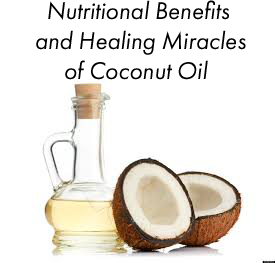 Coconut oil can help you lose weight.
Coconut oil can help you lose weight.
Yes, there is a dietary fat that can actually help you take off unwanted pounds.
Coconut oil can quite literally be called a low-fat.
Raymond Peat, Ph.D. - "The anti-obesity effect of coconut oil is clear
in all of the animal studies, and in my friends who eat it regularly."
Mary G. Enig, Ph.D - "Coconut oil has a unique role in the diet as
an important physiologically functional food. The health and nutritional benefits
that can be derived from consuming coconut oil have been recognized in many
parts of the world for centuries. A review of the diet/heart disease literature
relevant to coconut oil clearly indicates that coconut oil is at worst neutral
with respect to atherogenicity of fats and oils and, in fact, is likely to be
a beneficial oil for prevention and treatment of some heart disease. Additionally,
coconut oil provides a source of antimicrobial lipid for individuals with compromised
immune systems and is a non-promoting fat with respect to chemical carcinogenesis."
Traditionally, polyunsaturated oils such as
soybean oil have been used for livestock
feed because they cause the animals to gain weight. These oils are made up of
what is known as long chain fatty acids--the kind of fatty acids that promote
weight gain.
Coconut oil on the other hand is a saturated fat made up primarily of medium
chain fatty acids. Also known as medium chain triglycerides (MCTs), medium chain
fatty acids are known to increase metabolism and promote weight loss. Coconut
oil can also raise basal body temperatures while increasing metabolism. This
is good news for people who suffer with low thyroid function. There have been
scores of testimonies to this effect.

The Role of Our Liver in Weight Gain
Weight gain and depression are just two common manifestations of a congested, overworked liver.
Many people struggle with weight gain and a sluggish metabolism most of their
lives, and go through lots of yo-yo dieting unsuccessfully. “So why doesn’t
anything really work?” we may ask. We have been tackling the symptom when we
should be addressing the cause - weight gain is often due to
poor liver function.
Congestion throughout the body and a sluggish liver can contribute not only
to fatigue and malaise, but also to weight gain, especially around the abdomen,
cellulite, and water retention.
When we cleanse and detox the liver and then eat the right foods, liver metabolism
will improve and we start burning fat. As liver function improves, so does energy.
With more energy, fitness improves, because we have the ability to exercise
more and improve our muscle tone. As we cleanse the body, not only will we shed
excess pounds, we’ll also lose some of that lumpy, bumpy cellulite.
Two French physicians, Meus-Blatter and Laroche, discovered that cellulite
is cause by inefficient removal of wastes from the body. As toxic materials
collect between the cells, they are held by hardened connective tissue where
they build up to create pockets of water, toxins, and fat that give the skin
that unsightly peau d’orange (orange peel skin) appearance. Cleansing the body with
high amounts of raw food, and especially vegetable juices, not only helps
flush away the lumps and bumps, it also raises cell vitality.
Weight Control Begins With Hydration
Trying to lose weight is always a challenge, but water can be a valuable
and easily adaptable component of a diet plan. Water acts as an appetite suppressant
and is instrumental in breaking down and reducing fat deposits. The rate at
which we burn calories (our metabolism) is a chemical process requiring water. We need
adequate water to ensure the smooth functioning of this process. Water
helps to flush toxins out our system. The more toxins in our body the less capable
it is of losing weight. If you are dieting, keep your system functioning properly
and maximize weight loss by drinking plenty of water.
The pH Miracle for Weight Loss
Dr. Young PhD, maintain that the primary culprit behind excessive weight
gain, as well as many other health problems, is a chronic state of acidity in
the body (a pH value below 7.1). Shifting the
body’s chemistry to a more alkaline pH, they maintain, will quickly and easily result in the loss of excess weight
and the buildup of more lean muscle tissue.
Water is a God-given crucial nutrient for the body. But we have been hoodwinked
into accepting a product that is of progressively more inferior composition.
It is well known that the average city water today contains over 500 chemicals
that do not belong in it. Part of this is due to the fact that most delivery
systems in the U.S. include cement, asbestos pipes, cast iron, PVC (porous to
certain solvents, herbicides and pesticides) and that lead, cadmium and other
toxic metals leach out of valves and couplings of pipes between a water treatment
plant and a faucet in the home.
MSG in Our Food Slowly Poisoning America and Creating Obesity
The monosodium glutamate (MSG) obese rat as a model for the study of
exercise in obesity. Gobatto CA, Mello MA, Souza CT, Ribeiro IA. Res Commun
Mol Pathol Pharmacol. 2002 . I wondered if there could be an actual chemical
causing the massive obesity epidemic, so did a friend of mine, John Erb.
He was a research assistant at the University of Waterloo, and spent years
working for the government.
He made an amazing discovery while going through scientific journals
for a book he was writing called The Slow Poisoning of America. In hundreds
of studies around the world, scientists were creating obese mice and rats
to use in diet or diabetes test studies. No strain of rat or mice is naturally
obese, so the scientists have to create them. They make these morbidly obese
creatures by injecting them with a chemical when they are first born. The
MSG triples the amount of insulin the pancreas creates, causing rats (and
humans?) to become obese They even have a title for the race of fat rodents
they create: "MSG-Treated Rats" .
MSG was in everything! The Campbell's soups, the Hostess Doritos, the
Lays flavored potato chips, Top Ramen, Betty Crocker Hamburger Helper, Heinz
canned gravy, Swanson frozen prepared meals, Kraft salad dressings, especially
the 'healthy low fat' ones. The items that didn't have MSG had something
called Hydrolyzed Vegetable Protein, which is just another name for Monosodium
Glutamate. It was shocking to see just how many of the foods we feed our
children everyday are filled with this stuff. They hide MSG under many different
names in order to fool those who catch on.
Dr. Russell Blaylock, MD - "What if someone were to tell you that
a chemical (MSG) added to food could cause brain damage in your children,
and that this chemical could effect how your children's nervous systems
formed during development so that in later years they may have learning
or emotional difficulties?"